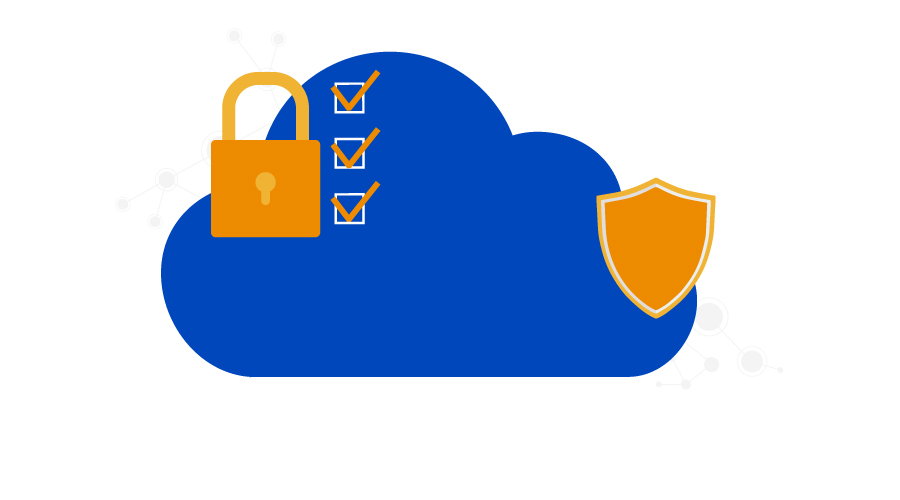Cloud Services
Get Your Head in the Cloud: A Level-Headed Move for Businesses

Information Anytime, Anywhere with the Cloud
Just What is the 'Cloud' Anyway?

Chances are, you're probably using the cloud already. Email applications like Yahoo or Google are examples of cloud-based operations. The cloud is a network of servers used for computing power, data storage or application hosting. With cloud-based computing, data is stored on the servers and users can access the data from any device that connects to the internet.
Basically, there are three types of cloud technology: Infrastructure, platform, and software. Cloud infrastructure includes storage, backup, and security, while cloud platforms are a set of functions for customers (usually software developers) to create their own applications.
The most common type cloud service business owners use is for software programs. Called Software as a Service, or SaaS, software programs are available 'for rent' and charged per user. Salesforce's products are cloud-based CRM software.
What are the advantages of software on the the cloud? Easy access to view and share business intelligence tops the list of the benefits of cloud services. Other benefits include security and savings in time, labor and productivity.
Ease and Accessibility
Security
Some people are hesitant to use the cloud because they're worried about security. Let's face it, any time you use a computer, you run a security risk. The chances of security breach are actually greater with on-premise data storage, however. Jim Lynch of Tech Soup explains, 'When thinking about cloud security and availability, you should also have a realistic sense of your current technology situation...odds are that your security isn't bulletproof, you don't have 100 percent system uptime, and you may not have staff resources dedicated to IT management. In the cloud, security and management are in the hands of trained, dedicated experts.'
Cloud providers face greater security standards because it is their business to provide a secure IT environment. Ben Rossi writes in Information Age that 'cloud businesses have to build secure data centres that are independently audited, adhere to standards such as Soc 2 Type II, and are used by hundreds to thousands of tenants.' Rossi continues, 'Cloud businesses have more secure IT environments than the organisations they sell to. Why? Because that's the product they're selling.'
Data is also more difficult to access without authorisation in a cloud environment, making it much more secure than on-premises applications. Most business owners are confident in cloud computing and use some aspect of cloud software in their business, trusting the dedicated experts in the Cloud infrastructure over their own small or non-existent IT department.
Savings in Labor, Equipment, Time, and Productivity
Some businesses are worried about the cost of cloud software. However, when savings in time, labor, productivity, equipment, software licenses and updates are taken into consideration, most business owners find cloud software well-worth the investment.
Companies using cloud services also require less on-site computing power. Because the data storage and computations of cloud software are handled on the cloud servers, companies find they have lower expenditures on hardware. Savings in time and labor are realised throughout companies that embrace Cloud technology. On the cloud, updates are automatic and require no attention from your internal IT, allowing a more streamlined IT department and savings in labor costs.
Salesforce CRM (customer relationship management) software is cloud-based for businesses. When companies realise the ease and convenience of having files and information always available across any device, they find they're better able to follow up on leads, plan marketing strategies and make solid data-driven decisions. The time saved through cloud software translates into more time for income producing tasks.
Increased productivity is another advantage of Cloud services. Lost data, server downtime, and storage space are no longer concerns with cloud services. Because data on the cloud is saved in real-time and backed up by several servers, you won't need worry about losing work in the case of a power-outage, power surge or human error.
Programs like Salesforce CRM allow companies to have their data all in one place, making it easy to see case histories and trends. According to Salesforce research, companies who use Salesforce Cloud CRM software experienced an average increase of 40 percent in their sales productivity and a 32 percent increase in their sales revenue.
If your business hasn't yet decided to move towards cloud services, maybe it's time to look up. Cloud services allow access to data from any device. CRM software run from the cloud enables sales presentations and meetings to run smoothly. When customers have questions, you have instant answers. With instant access to software, data can be updated in real-time, giving a better picture of your company's information. Your entire organisation has access to the same data, empowering better decisions. Considering all the advantages of Cloud services, the sky's the limit.


